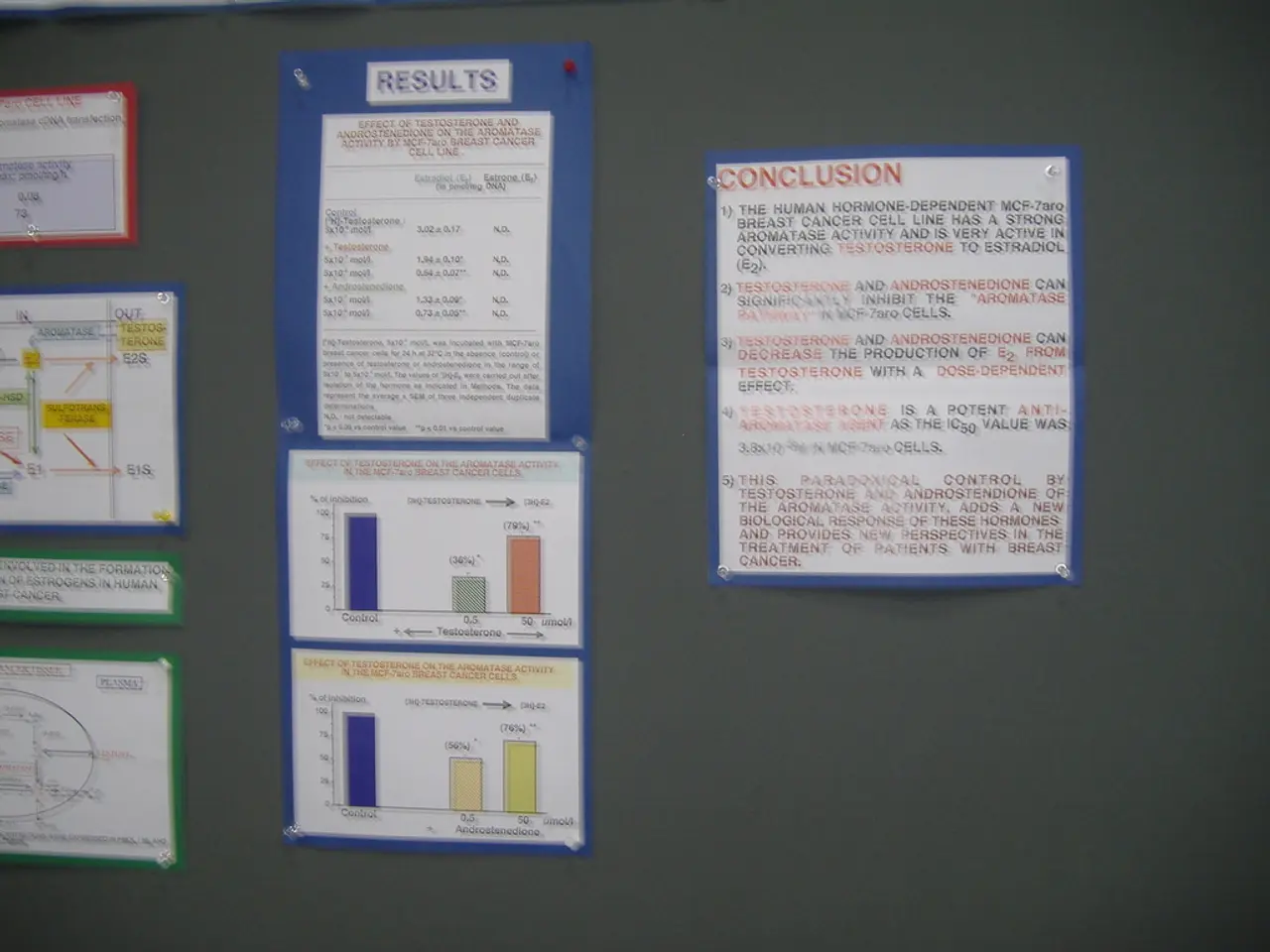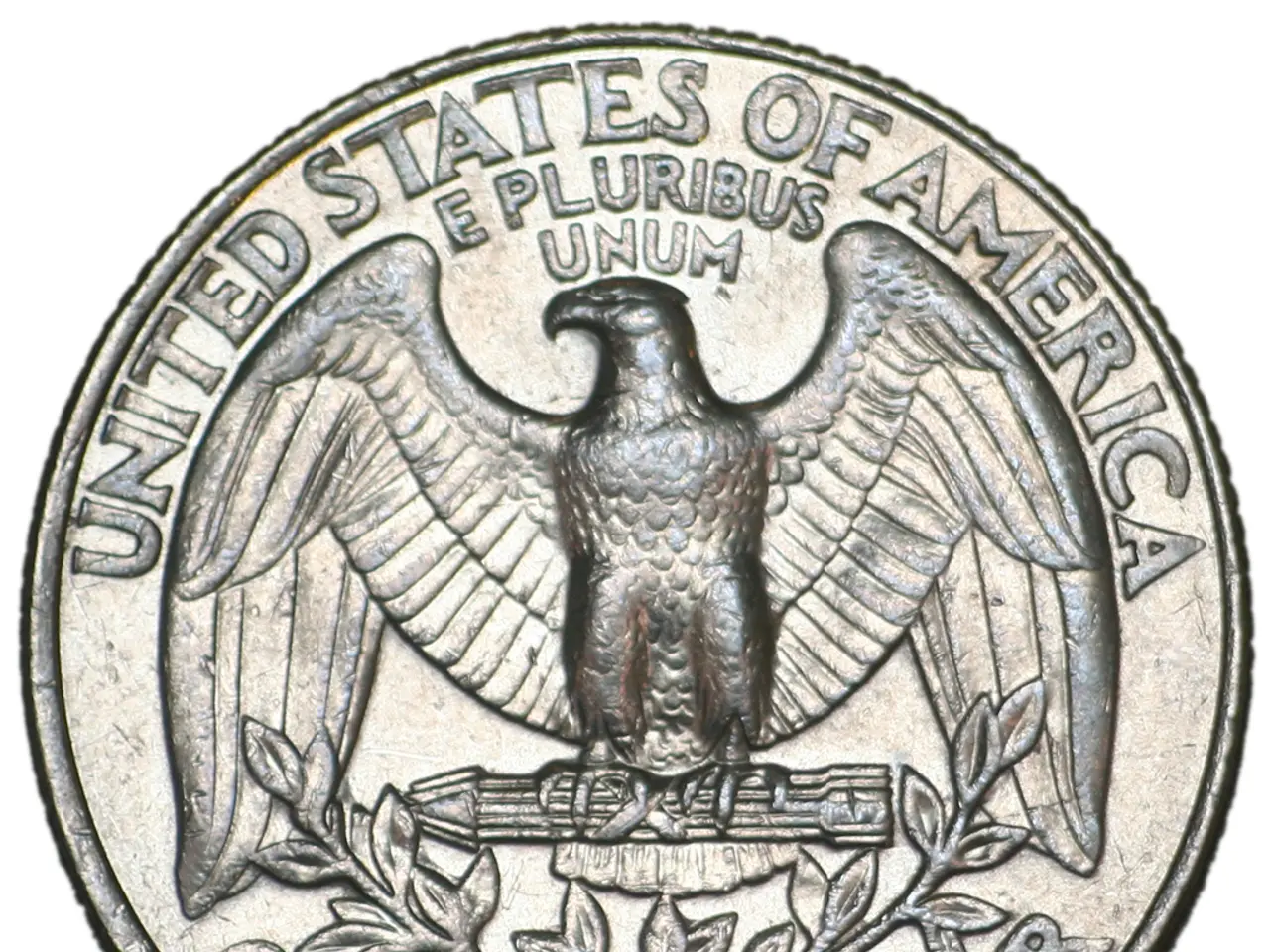EU conceded to Trump's trade demands, according to Trump's declaration of victory
Ireland's economy is facing challenges due to new tariffs introduced by President Donald Trump. The tariffs, which affect both pharmaceuticals and computer chips, could potentially reach up to 15%, with an investigation on pharmaceuticals expected to conclude in two weeks [1].
The impact of these tariffs is already being felt. Ireland's GDP shrank by 1% in the second quarter of 2025, marking the first contraction in almost two years, largely due to a drop in corporate activity linked to these tariffs [1]. Almost one-third of Irish exports go to the US, accounting for about 12% of GDP, making the imposition of a 15% tariff on most EU exports to the US a significant risk to export-driven growth [1][2].
The Irish government has expressed its regrets over the tariffs and is working to assess their economic implications [1][2]. The Department of Finance warns that the tariffs could result in up to 70,000 fewer jobs being created in Ireland over the next five years, highlighting the employment vulnerability caused by the US measures [4].
Sectorally, pharmaceuticals—which form a substantial part of Ireland’s exports to the US—are particularly exposed and could face tariffs potentially up to 200%, though some analysts suggest such extreme tariffs might be politically complicated due to their impact on US healthcare costs [3]. The broader impact is a slowdown in economic growth: following a surge of exports before tariffs took effect, growth is now expected to continue but at a reduced rate [2].
The EU is not alone in facing these tariffs. Most of the US' main trading partners have rates of 15% or 20%. However, it's important to note that the EU's 15% tariff is not the highest compared to other countries; India's is 25%, Canada's is 35%, and Switzerland's is 39% [6].
The sector of alcohol exports, critical for Ireland's whiskey industry and the EU's wine exports, has not yet been confirmed for a zero-for-zero tariff arrangement with the US [7]. The US economy, which is larger than the EU's, could potentially face higher inflation and long-term economic undermining from these tariffs [8].
European businesses have expressed opposition to a prolonged period of tit-for-tat tariffs, fearing damaging consequences [9]. The UK, another significant trading partner for Ireland, has a tariff of 10%, but rates can be added to it, and Britain does not have a written agreement capping pharmaceutical tariffs unlike the EU [10].
From the Irish perspective, there are still many unanswered questions [11]. President of the European Commission Ursula Von Der Leyen has defended the deal imposing 15% tariffs on EU goods, while Mr. Trump has stated that the EU would be "opening up their countries at zero tariffs" for US exports [1][2].
As the Irish government now has to decide how these tariffs will impact the Budget in October, it remains to be seen how Ireland will navigate these challenging economic times.
References: [1] "Ireland's economy shrinks as US tariffs hit exports", BBC News, 2025. [2] "Ireland braces for tariff impact as US-EU tensions rise", Reuters, 2025. [3] "Ireland's pharmaceutical sector at risk as US tariffs loom", Irish Times, 2025. [4] "US tariffs could cost Ireland 70,000 jobs, warns Department of Finance", Independent.ie, 2025. [5] "Ireland's economy faces challenges as US imposes tariffs", Irish Examiner, 2025. [6] "How do the new US tariffs compare to those of other countries?", The Guardian, 2025. [7] "Alcohol exports: a potential casualty in the US-EU trade war?", The Irish Independent, 2025. [8] "New US tariffs could lead to higher inflation and economic instability", Forbes, 2025. [9] "European businesses fear damage from US-EU tariff war", Financial Times, 2025. [10] "UK-US trade: what the tariff deal means for Britain", BBC News, 2025. [11] "Ireland faces uncertainty as US-EU tariff war escalates", The Irish Times, 2025.
- The Irish government is working to assess the potential economic impacts of the US tariffs on Finance policy-and-legislation, as they could result in up to 70,000 fewer jobs being created in Ireland over the next five years.
- With the EU's 15% tariff on most exports to the US, Ireland's GDP shrank by 1% in the second quarter of 2025, indicating a slowdown in general-news and economic growth, largely due to a drop in corporate activity linked to these tariffs.




